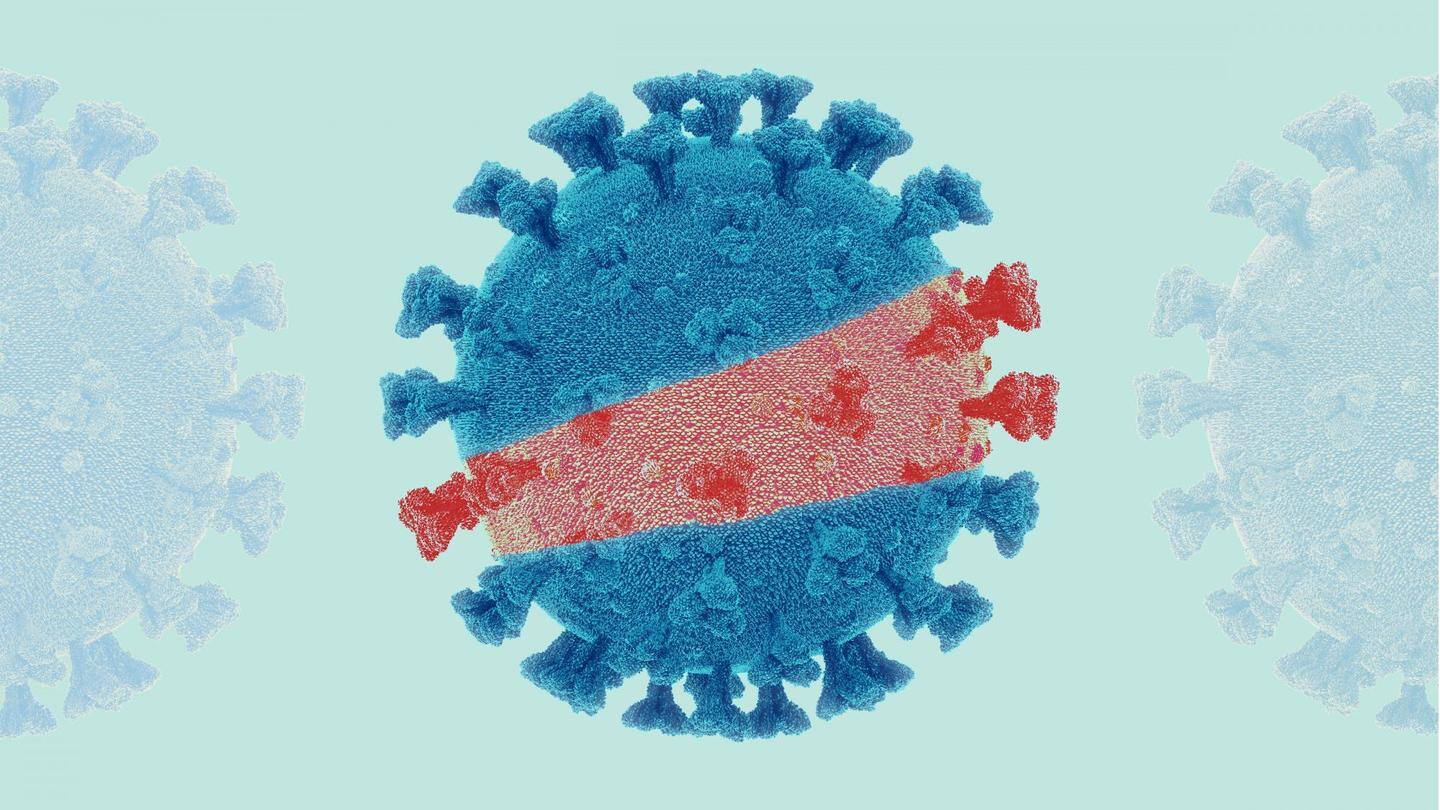
Why is the Delta variant so infectious? UK study reveals
What's the story
People vaccinated against COVID-19 are as likely to spread the Delta variant of the virus to their household contacts as those who have not taken the jab, according to a new study conducted in the United Kingdom.
The paper was published in The Lancet Infectious Diseases medical journal on Thursday.
Here are more details on the research and its findings.
Details
When was the study done?
The study included 621 participants and was carried out between September 2020 and September 2021.
Participants underwent daily RT-PCR tests to detect infection irrespective of whether or not they showed symptoms.
All the infected participants had mild COVID-19 and were asymptomatic.
Scientists found out that peak viral load in patients was similar regardless of their vaccination status.
Findings
What are the findings?
According to the study analysis, 25% of vaccinated household contacts contracted the disease while 38% of those who had not taken the vaccine became infected.
However, the vaccinated participants had milder cases and got rid of the virus more quickly.
Unvaccinated members, on the other hand, were more likely to suffer from severe infection and hospitalization.
Quote
'Vaccination alone cannot stop spread'
"Our findings show that vaccination alone is not enough to prevent people from being infected with the Delta variant and spreading it in household settings," said Ajit Lalvani, professor of infectious diseases at Imperial College London who co-led the study.
"The ongoing transmission we are seeing between vaccinated people makes it essential for unvaccinated people to get vaccinated to protect themselves," he added.
Variant
What is the Delta strain?
The Delta variant is the dominant coronavirus strain globally and has been found in over 180 countries.
It is said to be the most infectious variant identified yet and partially evades immunity generated after prior infection or vaccination.
It had driven India's devastating second wave of COVID-19 this year and later triggered fresh outbreaks in the UK, the United States, and China.
Other details
Vaccine immunity wanes within months, study finds
The study also revealed that immunity from full vaccination waned in just three months, adding that booster shots of the vaccine can help tackle that problem.
"Immunity wanes over time, it is imperfect, so you still get transmission happening, and that is why the booster program is so important," said Imperial College epidemiologist Neil Ferguson.